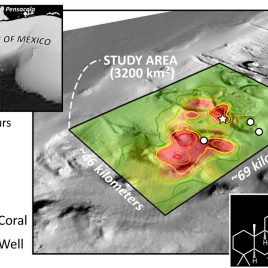After the 2010 Deepwater Horizon incident, the fate of around two million barrels of oil out of the five million barrels released in the Gulf of Mexico was uncertain. R esearchers now estimate that much of these two million barrels has settled on the ocean floor around the well at a depth of 1.5 km. They looked […]
Tag: environment
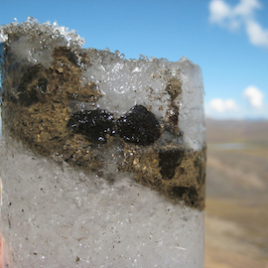
Ancient Arctic viruses still infect plants
The genome of a virus found in 700-year-old frozen caribous feces was shown to infect plants in the laboratory, a new study reveals. Researchers analyzed the viral genetic material contained in a core drilled through layers of accumulated caribou feces up to 4,000 years old in an ice patch in Canada’s Selwyn Mountain in the […]
Arctic sea-ice decline has made severe Eurasian winters twice as likely
The decline in Arctic sea ice over the past few decades has doubled the chance of severe winters in Europe and Asia, a new study shows. Researchers performed computer simulations to show that sea-ice decline in the Arctic Barents and Kara seas since 2004 is linked to blocking situations of the jetstream which in turn […]
How to reduce damage from unregulated fisheries
Canadians are used to the idea that governments regulate fisheries, but around the world more than 100 million people – 90 per cent of the worlds’ fishers – operate in small-scale fisheries with no records or controls. In a Policy Forum article, the authors recommend methods to reduce the damage that illegal, unregulated and unreported […]
Abundant natural gas won’t solve greenhouse emissions
Models suggest that a shift from coal to cheap natural gas is unlikely to lead to a significant reduction in greenhouse gas emissions worldwide. Natural gas is often touted as a greener fuel than coal because it produces fewer greenhouse gases, and due to advances in hydraulic fracturing technology it has become readily available. Researchers […]

China heats up
Eastern China experienced a record-breaking summer heatwave in 2013, but analysis shows that this extreme could soon become the new normal. Researchers looked at temperature records in eastern China from 1950 to 2013 and found that average summer temperatures have increased by 0.82 C during that time. Summers as hot as 2013 are now 60 […]
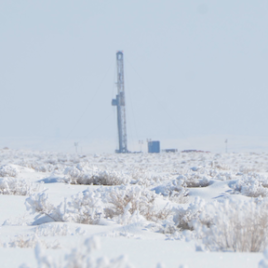
Oil industries and winter ozone pollution
A new study explains the mechanism by which ground-level ozone pollution peaks during winter in oil and gas producing regions. Winter ozone pollution is hard to explain because the summer sunlight is normally needed to spark the chemical reactions that create ground-level ozone. The authors analyzed the chemical reactions happening in the atmosphere during winter in […]
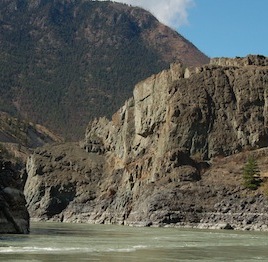
‘Upside-down’ water flows keep the Fraser Canyon steep
A new study shows water in certain stretches of the 542-kilometre Fraser Canyon in British Columbia is flowing ‘upside-down’, a discovery that helps explain why the canyon walls remain so steep. Researchers discovered that high velocity water flows down into deep pools and then upwells along the canyon walls, such that the water along the bottom flowing […]
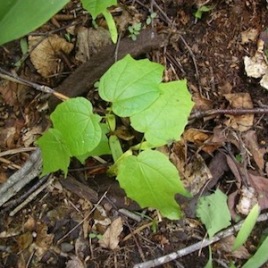
How will climate change affect sugar maples?
A changing climate means trees will grow in new places, but an experiment with sugar maples shows that other factors – such as soil conditions or seed predation – need to be taken into account as well. Researchers grew maple seedlings on the slopes of a Quebec mountain where climate conditions are more favourable for […]
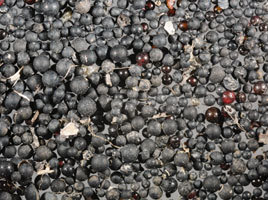
Microplastic pollution found in the St. Lawrence River
Concentrations of microplastic particles in the St. Lawrence are as high as has been observed in the world’s most contaminated marine sediments, a new study shows. This is also the first time such pollutants have been found in freshwater sediments. The authors dug up microplastics (in the form of polyethylene ‘microbeads’, <2 mm diameter) from the […]
Climate change: cropland could expand in Canada
A new simulation of the impact of climate change on the supply of agricultural land shows that suitable cropland will expand in Canada, Russia, China and other countries in the high latitudes of the Northern hemisphere. On the other hand the authors project a significant loss of highly fertile cropland in the Mediterranean regions and […]
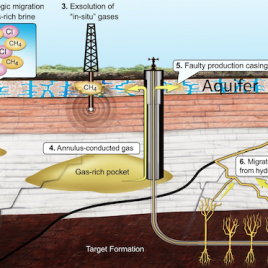
Tracing groundwater contamination above shale gas fields
A new study shows that methane leaks in drinking water wells around shale-gas wells in Pennsylvania and Texas come from failures in the integrity of gas well construction, and not from the drilling or hydraulic fracturing. The authors developed a new technique to look for the concentration of noble-gas isotopes in drinking-water samples to determine […]

Genomics: the power & the promise – Early bird registration
Genome Canada and The Canada Gairdner International Awards are hosting a conference and gala dinner event exploring the theme “Genomics: the Power & the Promise“. The conference will explore how genomics has affected our daily lives, as well as the impacts of environmental factors on human health. Held at the Ottawa Convention Centre between November 24 – 26, 2014, the […]
Resistance of the boreal forest to fire
A new study shows that the boreal forest could be more resilient to forest fire than previously thought. Using climate projections, scientists estimate that forest fire in the Boreal forest in Canada will be bigger and happen more frequently by the end of the 21st century. However, a careful study of the past 200 years […]
Calculating the impact of a “Green Revolution”
New research suggests that improving crop yields has reduced carbon emissions and land use worldwide, but that this might not be the case in the future. The “Green Revolution” refers to the use of fertilizers, pesticides and other agricultural technology to increase crop yields. Previous studies have shown that rather than decreasing the amount of land […]
Polar vortex linked to Arctic sea-ice loss
The loss of Arctic sea-ice may be responsible for the weakened polar vortex and cold Northern Hemisphere winters observed in recent years, a new study shows. The researchers conducted observational analyses and model experiments to reveal a link between Arctic sea-ice loss and polar atmospheric circulation. Researchers showed that decreased sea-ice cover during November and December […]
